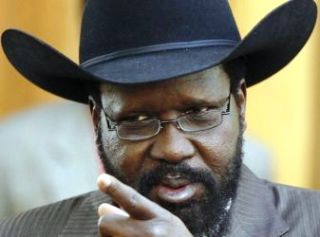Peace talks between rebels in South Sudan and the government appeared to have stalled late Wednesday, with rebels saying there will be no truce until President Salva Kiir reverses himself and frees 11 jailed pro-rebel leaders.
So far, President Kiir has refused to release the detainees, who were arrested last year for their alleged roles in a coup plot. Earlier in the day, government delegates said they were ready to sign a truce "soon," but they did not elaborate.
The two sides are meeting face-to-face for the first time in Addis Ababa, as fierce battles rage in their nearby homeland.
A South Sudanese radio station, Radio Tamazuj said the town of Mayom in Unity State has been "destroyed" after two days of heavy fighting between army forces loyal to President Kiir and defectors who back the president's rival, Riek Machar.
Nearly a month of violence in South Sudan has killed more than 1,000 people and forced about 200,000 from their homes.
Ahead of Wednesday's stalemate, White House Senior Director for African Affairs Grant Harris spoke with VOA Sudan in Focus program.
"The key point is that it doesn't matter how the violence started. What matters now is to bring an end to the fighting and seeking successful political negotiations so that the country can get back on track in pursuing the development goals and the governance goals that were set out at its founding," said Harris.
The U.N. mission in South Sudan said Tuesday that most villages along the road from Mayom to nearby Pariyang appeared to be burned or looted. U.N. humanitarian official Toby Lanzer said Wednesday he will go to Unity State to learn more.
South Sudan's unrest began December 15 when renegade soldiers attacked an army headquarters. President Salva Kiir accused former vice president Riek Machar of a coup attempt. Machar has called for the army to overthrow the president.
Witnesses say some of the violence is ethnically motivated, with supporters of Kiir, a member of the Dinka tribe, and supporters of Machar, from the Nuer tribe, targeting each other.
Credit: Voice of America



